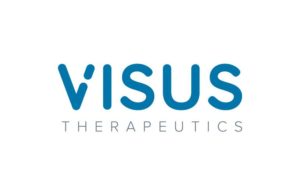 Visus Therapeutics announced today that three novel presbyopia treatments achieved their improvement endpoints in a Phase 2 study.
Visus Therapeutics announced today that three novel presbyopia treatments achieved their improvement endpoints in a Phase 2 study.
Seattle-based Visus’ Vivid Phase 2 study observed all three of the included investigational candidates achieve the endpoint of three lines of improvement in binocular near visual activity without losing one line of distance vision with a minimum responder rate of 83% at one hour.
According to a news release, a minimum of 35% of subjects in the study met the same endpoint at nine hours in all three formulations, with all three also presenting strong tolerance from subjects and favorable safety profiles. The company said in the release that, based on the outcomes, it plans to commence Phase 3 pivotal trials shortly.
The three formulations — Brimochol, Brimochol F and Carbachol F — had a minimum of 82%, 52% and 35% meet the endpoint of three lines of improvement in binocular near visual acuity under mesopic conditions without losing one line of distance vision at 1 hour, hitting the endpoint at three, seven and nine hours, respectively.
No unexpected or serious adverse events were observed, with adverse events exceeding 5% including temporary burning and stinging upon instillation, as well as headache and brow ache.
“We are very encouraged by the Vivid study topline clinical data, which demonstrate that our clinical development program has delivered drug candidates which provide a durable improvement in visual acuity with favorable tolerability and safety profiles,” Visus Co-Founder, CMO & Head of R&D Dr. Rhett Schiffman said in the release. “We know that presbyopia has a profound impact on quality of life for patients. These positive results provide further confidence that we are well-positioned to bring to market the longest-lasting eye drop in the presbyopia category, which would be a meaningful breakthrough treatment for these individuals. We are excited to initiate our Phase 3 pivotal trials.”
Vivid was a double-masked, randomized, dose-ranging, multi-center, three-arm crossover study of 85 subjects between ages 45 and 80 years old with emmetropic phakic and pseudophakic presbyopia at three U.S. sites.
“The successful completion of the Vivd study marks an important milestone for Visus Therapeutics,” Visus Co-Founder & CEO Ben Bergo said. “In light of the recent FDA approval of Allergan’s Vuity, the first pharmacologic approved for the treatment of presbyopia, it is truly exciting to see this category come to fruition. We are pleased the Vivid study data exceeded our expectations, demonstrating a clear opportunity to commercialize long-acting miotic formulations.”
Earlier this year, Visus entered into a licensing agreement with DelSiTech to develop investigational treatments for intraocular administration using a biodegradable, silica-based, sustained-release drug delivery technology designed to overcome the limitations of currently available ophthalmic therapies through the consistent drug release over an extended period of time, as well as the ability to dissolve as the drug is released, leaving no residue in the eye.

